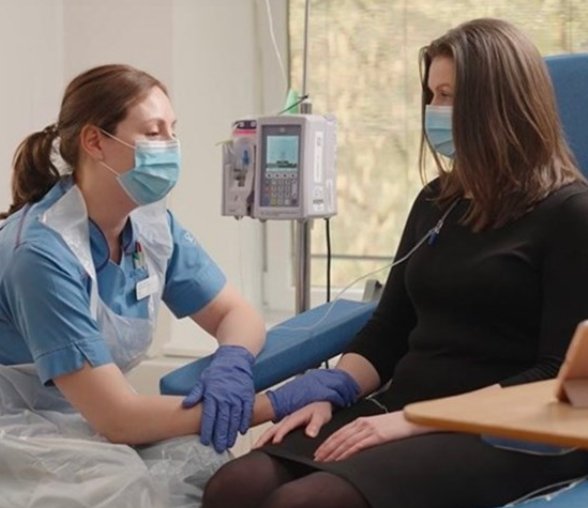A patient dies by suicide in Scotland’s mental health hospitals nearly every five weeks, according to newly released research. Many of these patients were previously assessed as low or no short-term risk before their deaths, raising serious concerns about safety measures in psychiatric wards. Families of victims are calling for urgent reforms, while official bodies have issued multiple warnings to healthcare institutions failing to address risks.
Disturbing Trends in In-Patient Suicides
A study by the University of Manchester, which tracks suicide rates and safety trends for mental health patients across the UK, uncovered troubling statistics. Between 2012 and 2022, an estimated 139 psychiatric in-patients in Scotland died by suicide. The data shows a consistent pattern of individuals deemed low-risk taking their own lives while under hospital care.
- In 2022, 11 suicides were recorded among psychiatric in-patients in Scotland, equating to 5.9 suicides per 10,000 admissions.
- This marks an increase from 2019, when there were eight suicides, at a rate of 3.7 per 10,000 admissions.
- The majority (64%) of these patients had been classified as low or no short-term risk before their deaths.
The numbers have sparked a wave of concern from mental health advocates and families, who argue that hospitals are failing to provide adequate protection for their most vulnerable patients.

Family Outrage Over Preventable Deaths
The impact of these failures is deeply personal for families like Christopher MacRae’s. His mother, Dr. Sara MacRae, a former psychiatrist, took her own life in her room at the Royal Edinburgh Psychiatric Hospital in 2020.
A Fatal Accident Inquiry (FAI) last year found that NHS Lothian had missed multiple opportunities to prevent her death. The report highlighted that her room had been classified as a “high risk” for suicide the year before her passing, yet necessary safety modifications were delayed due to budget constraints.
Christopher MacRae expressed frustration at the lack of accountability. “The research confirms what families like mine already know: patient safety isn’t a priority,” he said. “Unlike in prisons, where every death results in a full inquiry, psychiatric hospitals face no such requirement. That needs to change.”
Official Warnings and Hospital Safety Failures
Scotland’s hospitals have come under scrutiny from the Health and Safety Executive (HSE), which has issued multiple improvement notices over unsafe conditions that contribute to patient suicides.
Recent HSE Warnings:
| Hospital | Issue | Status |
|---|---|---|
| New Craigs, Inverness | 8,000+ ligature points found in patient rooms | Ongoing safety improvements |
| Lorn and Islands Hospital, Oban | Failure to reduce suicide risk | Compliance achieved |
| Wishaw University Hospital | Suicide risks in mental health ward | Legal proceedings ongoing |
| Forth Valley Royal Hospital | High suicide risk due to unsafe conditions | Compliance achieved |
New Craigs, where three patients have taken their own lives in five years, was found to have thousands of ligature points that could facilitate suicide. NHS Highland has acknowledged the problem but says safety upgrades are still in progress.
In Wishaw, NHS Lanarkshire declined to comment on whether improvements had been made, citing ongoing legal proceedings. Meanwhile, NHS Forth Valley categorized its mental health unit as “high risk” in January, stating that there was no assurance that future deaths wouldn’t occur.
Lack of Mandatory Investigations Raises Alarm
A 2018 Scottish government review found inconsistencies in how deaths of psychiatric patients are investigated. In many cases, deaths are not examined at all unless flagged as “unexpected” or “avoidable.” This lack of scrutiny stands in contrast to prisons, where every death results in a full inquiry.
The Mental Welfare Commission for Scotland (MWCS) was tasked with designing a standardized review system, but its recommendations remain unimplemented. A spokesperson for the MWCS stated: “We absolutely agree that a consistent approach is needed to ensure proper learning from these tragedies.”
Government Response: Promises But No Immediate Action
The Scottish government has acknowledged the issue but has yet to implement concrete changes. A spokesperson stated: “Every death by suicide is a tragedy. Our suicide prevention strategy outlines work to reduce suicide, including in clinical settings. We are working with MWCS to develop a new system for reviewing deaths under mental health detention.”
For families who have lost loved ones, these words offer little comfort. Many continue to push for greater transparency, independent inquiries, and structural reforms to prevent further loss of life. Until real action is taken, Scotland’s psychiatric wards remain places of uncertainty—and, for some, fatal risk.


















